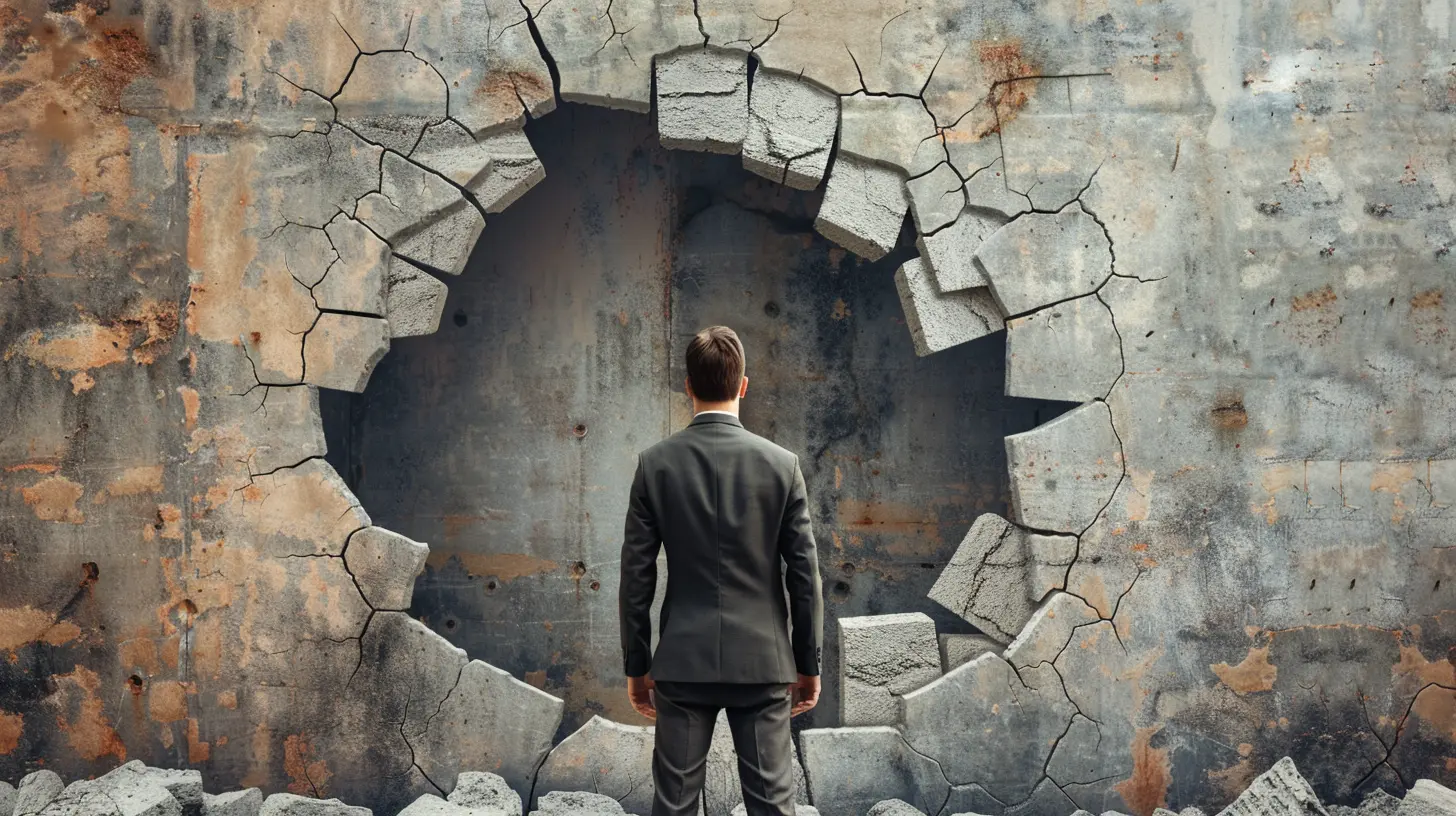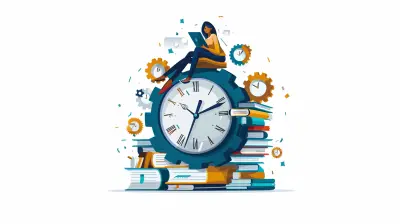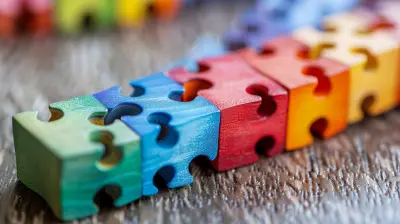Turning Failures into Opportunities for Professional Growth
31 May 2025
Failure—it's a word that makes most of us cringe. Nobody likes to fail, but let’s be real: setbacks are an inevitable part of life. Whether it’s missing out on a big promotion, struggling with a work project, or facing rejection in your career, failure stings. But here’s the good news—failure isn’t the end of the road. In fact, it can be one of the best learning experiences you’ll ever have.
When handled the right way, failure can be a stepping stone to professional growth. It pushes you to re-evaluate, adapt, and come back stronger. Think of it like a workout for your career—each setback strengthens your skills, resilience, and knowledge. So, instead of fearing failure, let's flip the script and use it to our advantage.

Why Failure is Essential for Growth
Most of us have been conditioned to see failure as something negative. From an early age, we're taught to avoid mistakes at all costs. But the reality? Some of the world's most successful people failed—repeatedly—before achieving greatness.Take Thomas Edison, for example. He made 1,000 unsuccessful attempts before inventing the light bulb. When asked about his failures, he simply said, "I have not failed. I've just found 10,000 ways that won't work." That’s the mindset we should all aim for.
Failure teaches us valuable lessons that success simply can't. When everything goes smoothly, we don’t have much reason to question, analyze, or improve. It’s the setbacks that force us to rethink our approach, develop new strategies, and refine our skills.
The Psychological Shift: Embracing a Growth Mindset
One of the biggest differences between people who use failure as a stepping stone and those who let it defeat them is mindset. Carol Dweck, a Stanford psychologist, introduced the concept of the growth mindset—the belief that abilities and intelligence can be developed through effort and learning.People with a fixed mindset see failure as proof that they aren’t good enough. They avoid challenges because they fear looking incompetent. On the other hand, those with a growth mindset view failure as a chance to improve. They see setbacks as temporary obstacles, not permanent roadblocks.
So, how do you shift your mindset?
- Reframe the way you see failure – Instead of thinking, "I failed, so I'm not good at this," try, "I failed, so I have a chance to get better."
- Focus on effort over results – Success isn’t always about getting everything right. It’s about trying, learning, and improving.
- Celebrate small wins – Every time you pick yourself up after a failure, that’s a victory. Acknowledge your progress.

How to Turn Failures into Opportunities
Now that we understand failure is a natural (and even beneficial) part of growth, how exactly do we turn it into an opportunity? Let’s break it down step by step.1. Acknowledge and Accept Failure
The first step is simple but tough—accept that you’ve failed. Many people waste time denying their setbacks or making excuses, but that only delays progress. Instead, own it. Say, "Yes, I messed up. Now, what can I learn from this?"Accepting failure doesn’t mean you enjoy or welcome it, but it does mean you stop letting it control you. The faster you acknowledge it, the sooner you can move forward.
2. Analyze What Went Wrong
Once you've accepted failure, take a step back and analyze what happened. Ask yourself:- What exactly went wrong?
- Was it a lack of preparation, skills, timing, or external factors?
- Were there warning signs I ignored?
- What could I have done differently?
Honest self-reflection helps you pinpoint the weaknesses that need improvement. It's like troubleshooting a broken gadget—you can’t fix it unless you know what’s causing the issue.
3. Extract Lessons from the Experience
Every failure holds a lesson, but it’s up to you to find it. Ask yourself:- What can I learn from this experience?
- How can I prevent this from happening again?
- How can I improve my skills or strategies?
For example, if you bombed a job interview, maybe you weren’t fully prepared for the questions. That’s a lesson—you now know you need to practice more or research the company better next time.
4. Adjust Your Strategy
Learning from failure is great, but applying those lessons is what makes the real difference. Adjust your approach, refine your skills, and try again.If a project you managed didn’t go as planned, improve your organization and communication for next time. If a business venture failed, reassess your market strategies and pivot. Failure only becomes a waste if you don’t use it to get better.
5. Develop Resilience and Persistence
Success isn’t about never failing—it’s about never giving up. The most successful individuals in any field are not necessarily the smartest or the most talented. They’re the ones who keep pushing forward despite their setbacks.J.K. Rowling was rejected by multiple publishers before Harry Potter became a global sensation. Walt Disney was fired for lacking creativity before building his empire. These icons didn’t succeed because they never failed—they succeeded because they didn't quit.

How Organizations Can Foster a Culture of Growth Through Failure
Failure doesn’t just apply to individuals. Companies and organizations can also benefit from creating an environment where employees feel safe to take risks and learn from mistakes.Encouraging Innovation Without Fear of Failure
When employees fear punishment for failing, they stop experimenting with new ideas. That stifles creativity and growth. Organizations should:- Promote open discussions about what went wrong and how to improve
- Encourage calculated risks and innovation
- Recognize and reward efforts, not just successful outcomes
Fail Fast, Learn Faster
The concept of "failing fast" is popular in tech startups. The idea is simple—fail quickly, learn the lessons, and iterate. The faster you embrace failure as a learning step, the quicker you’ll find success.Instead of spending years perfecting an idea only to find out it doesn’t work, companies that embrace failure as part of the process can adapt and improve quickly.

Final Thoughts
Failure is not a sign that you’re not good enough—it’s proof that you’re trying. And every mistake, every setback, every rejection is an opportunity to grow stronger, smarter, and more resilient.Instead of fearing failure, start embracing it. Learn from it, adjust your approach, and use it as a stepping stone toward success. Because when you shift your perspective, failure doesn’t define you—it refines you.
So, the next time you stumble, remember: failing isn’t falling. It’s just another step forward in your journey to greatness.
all images in this post were generated using AI tools
Category:
Professional DevelopmentAuthor:

Bethany Hudson
Discussion
rate this article
3 comments
Azurael Sanders
Failure is not the end; it’s a stepping stone. Embrace setbacks with fierce determination—they’re the fuel for your greatest achievements.
June 13, 2025 at 11:38 AM

Bethany Hudson
Thank you for your insightful comment! Embracing setbacks truly enriches our journey toward success.
Colin Velez
Embrace failures as stepping stones to success! Each challenge offers valuable lessons that lead to growth and new opportunities. Keep pushing forward!
June 5, 2025 at 12:40 PM

Bethany Hudson
Absolutely! Embracing failures not only fuels personal growth but also opens doors to new opportunities. Every setback is a chance to learn and evolve. Keep moving forward!
Kassidy Butler
This article offers valuable insights on embracing failures as essential learning experiences. It effectively highlights how setbacks can fuel personal and professional growth, encouraging a resilient mindset in the face of challenges.
June 1, 2025 at 3:15 AM

Bethany Hudson
Thank you for your insightful comment! I'm glad you found the article valuable in highlighting the importance of embracing failures for growth.



